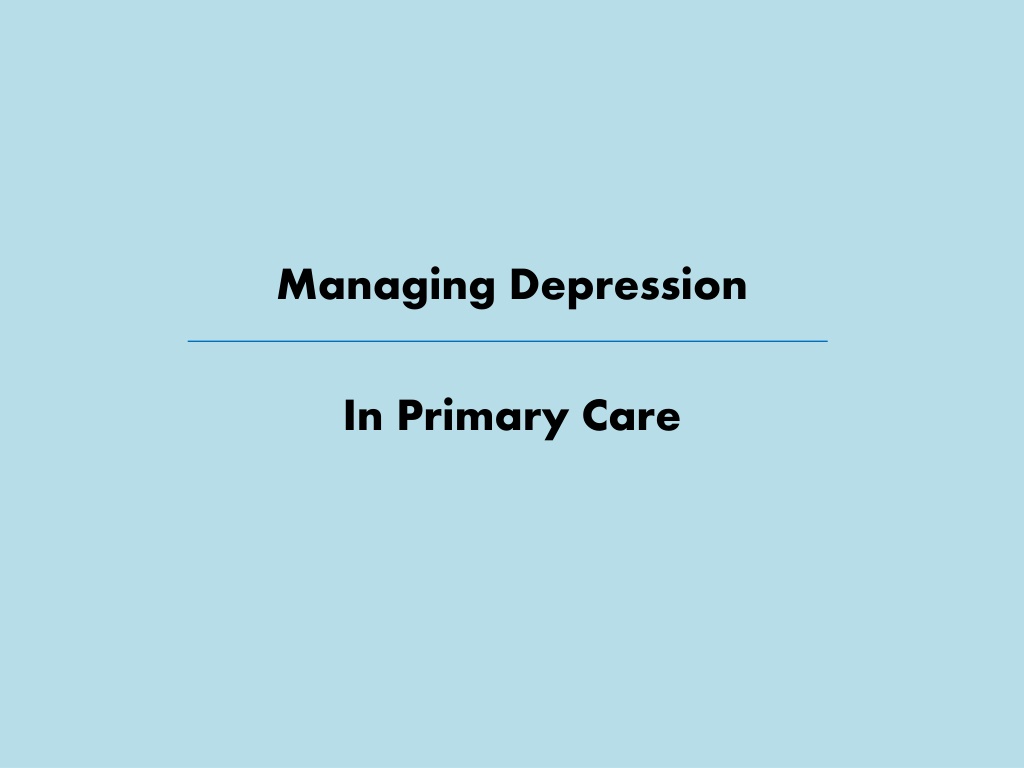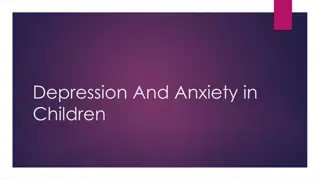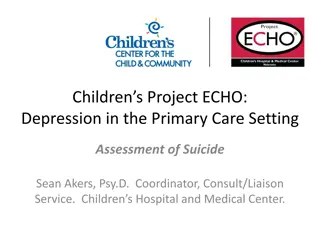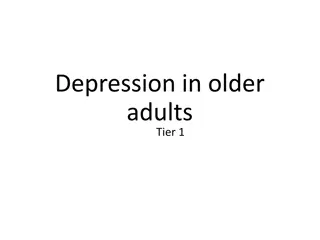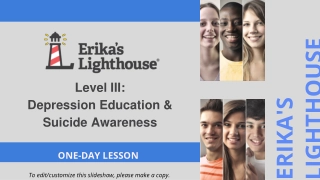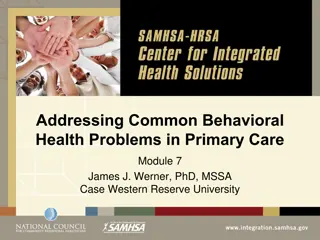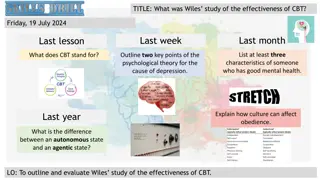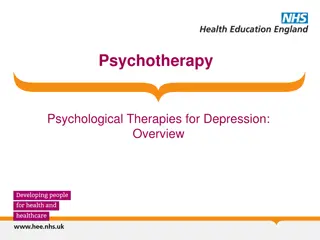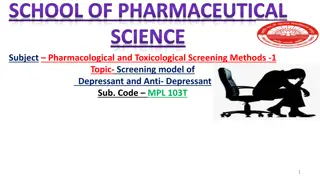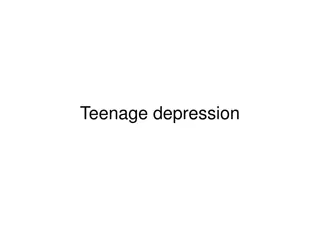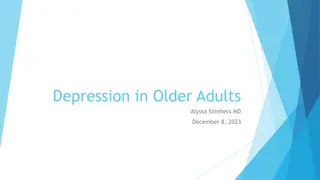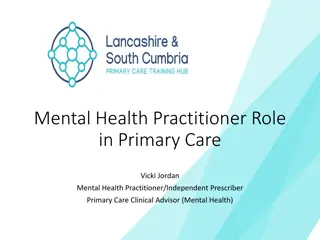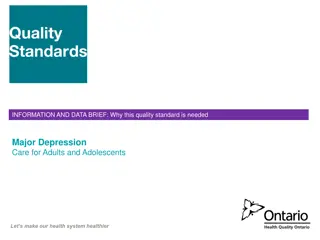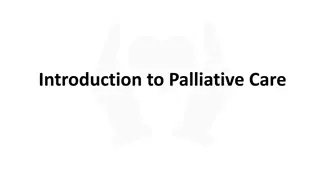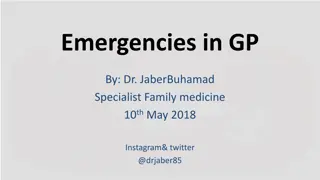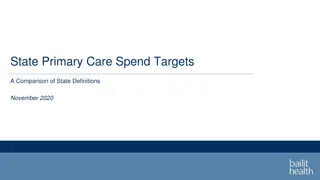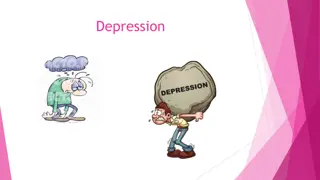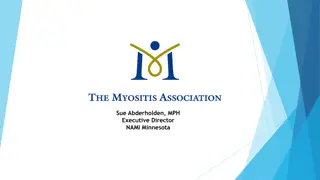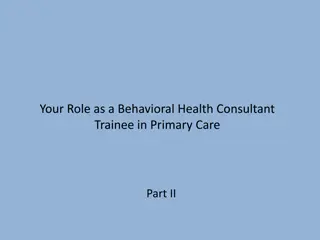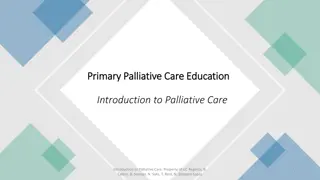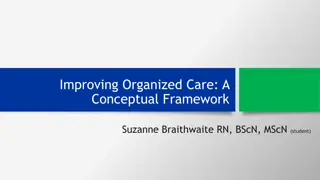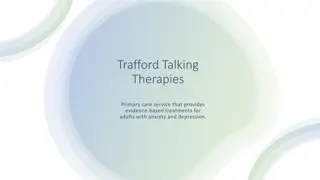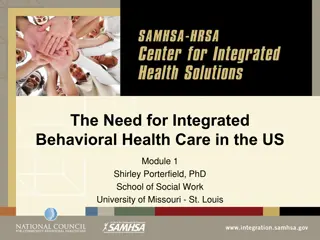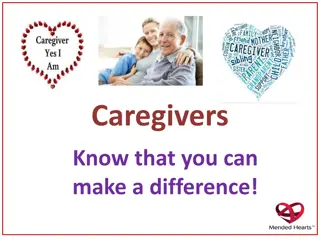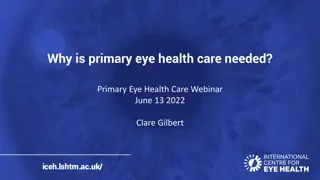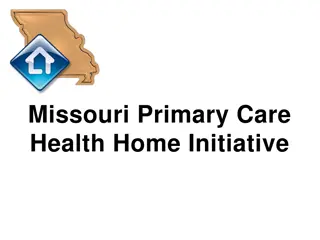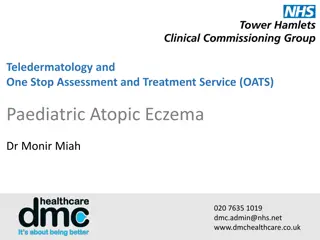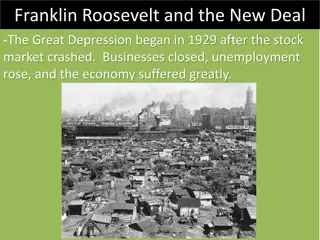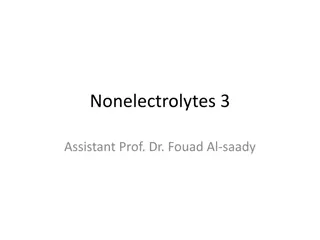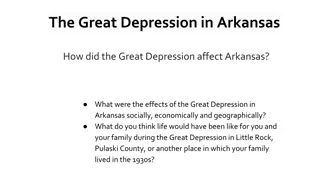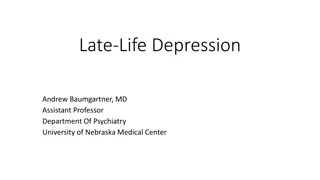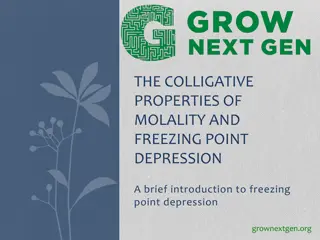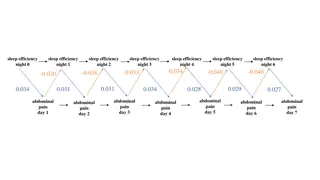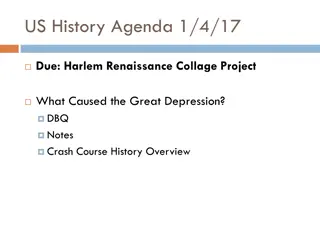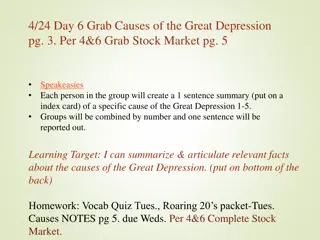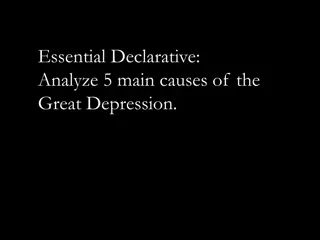Comprehensive Guide to Managing Depression in Primary Care
This guide provides essential information on managing depression in primary care, including learning objectives, team members at Open Door Adult Psychiatry, patient criteria, wait times, chart consult services, and insights from the STAR*D Trial. Find out about prescribing antidepressants, when to switch medication, choosing augmenting agents, screening for bipolar disorder, and the use of benzodiazepines. Access valuable tips on navigating treatment options and ensuring timely care for adult patients seeking psychiatric support.
Download Presentation

Please find below an Image/Link to download the presentation.
The content on the website is provided AS IS for your information and personal use only. It may not be sold, licensed, or shared on other websites without obtaining consent from the author. Download presentation by click this link. If you encounter any issues during the download, it is possible that the publisher has removed the file from their server.
E N D
Presentation Transcript
Managing Depression In Primary Care
Learning Objectives - Know the psychiatry program at Open Door - Which antidepressant to start first - When to switch antidepressants - How to choose an augmenting agent - Screening for bipolar disorder - When and how to use benzodiazepines
Open Door Adult Psychiatry Who works our clinic? One MA (Rhonda Taylor) One RN (Brent [John] Jenkins) We share the Suboxone RN (Ray Grosveld) One prescriber (Jasen Christensen)
Open Door Adult Psychiatry Who can we see? - Adult patients - Partnership, MediCare, MediCal - Anyone who doesn t meet CMH outpatient criteria (no violence, suicide attempts or psychiatric hospitalizations in the last 6 months) - Patients who are agreeable to taking psych meds
Open Door Adult Psychiatry How long does it take? About 2 months from time of referral. Any hoops? BHC assessment must happen first. Anything else to know? We are triaging to keep the wait list short!
Open Door Adult Psychiatry What else can we do? We can take chart consults. - As long as the patient isn t getting psychiatric care elsewhere. - Treat these like curbside consults. - Send them to us as STAFF MSG or CC d chart. - Make sure you still have an informed consent discussion with the patient!
The STAR*D TRIAL How to choose a medication. What about Benzodiazepines?
The STAR*D trial N.I.M.H. funded Prospective study to evaluate depression treatment in the real world Largest study of its kind ever conduced (~4000 patients) Limited randomization (just like the real world) There were four stages of treatment (the first two stages were mainly in primary care clinics) Length of study was ~5 years
Brief overview of STAR*D 30% remission + 13% response 25% remission 20% remission 10% remission But, don t get stuck on the details!
Focus on the STAR*D implications Remission is the goal because it leads to a better prognosis If a treatment fails, then switching OR augmenting is beneficial For most patients, remission will require repeated trials of sustained & vigorously-dosed medication (maximal tolerable dose for at least eight weeks). With two well-delivered trials, 50% of patients will enter remission! But, after two well-delivered trials, the likelihood of remission substantially decreases, so consider referring to psychiatry. STAR*D tells us that being persistent is very important. It s actually more important than choosing the right med.
The main take-home point of STAR*D is DURATION. The average duration of treatment required to achieve remission was 7 weeks. Half of all patients who achieved remission, did so after 6 weeks. 40% of all patients who achieved remission, did so after 8 weeks.
HOW TO CHOOSE A MEDICATION Rule-out the meds contraindicated for your patient. Find out about family history of good (or bad) response to particular medications. Consider past med trials: Were they of sufficient dose and length? If past med trial well-delivered and it was not effective, or if it led to intolerable side effects, then chose a new med which is metabolized via a different CYP450 route.
There are 3 major CYP450 metabolic pathways for serotonergic meds. 2D6 2C19 3A4 Prozac (fluoxetine) Celexa (citalopram) Pristiq * (desvenlafaxine) Paxil Lexapro (escitalopram) Viibryd * (vilazodone) (paroxetine) Effexor (venlafaxine) Zoloft (sertraline) Cymbalta (duloxetine) The serotonergic meds on this page are the mainstay of depression treatment. Luvox (fluvoxamine) Trintellix * (vortioxetine)
What if one of those serotonergic meds didn t work? If there was response but not remission after a well- delivered trial, then augment the serotonergic med with: Remeron if insomnia is a prominent problem Buspar if anxiety is a prominent problem Wellbutrin if low energy/motivation is prominent If there was no response or if it caused intolerable side effects, then switch to a serononergic medication metabolized via a different CYP450 route. Always make sure the trial was sufficient so you re not burning through options.
Screening for Bipolar Serotonergic medication can switch bipolar patients into mania. Why do it? Remember to D.I.G. F.A.S.T Distractibility Indiscretion Grandiosity Flight of ideas Activity increase Sleep deficit (DECREASED NEED FOR SLEEP) Talkativeness (PRESSURED SPEECH) What questions to ask: Family history
What about Benzodiazepines? KNOW THE BASELINE ! They re NOT a good choice for chronic anxiety Keep the duration under 3 months when using for acute anxiety *** FIRM DISCUSSION NEEDED HERE BEFORE THE RX *** They can be a fair option for rare safety net use They are a good treatment for specific phobias (rare use) Alcohol withdrawal (short duration) For dependent patients, a 6 month taper can be very well tolerated
We cant offer our patients Caribbean beaches. But we CAN offer them knowledge from the STAR*D trial: Shoot for maximum doses Persist to 8 weeks Expect to change or augment at least once Be very stingy with benzos Then refer them out
Contact me if you want the more info or primary sources. Jasen Christensen, DO ext - 3210
